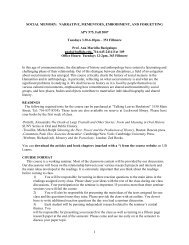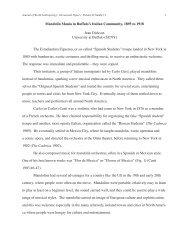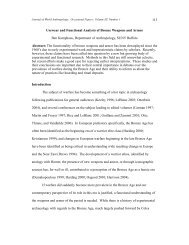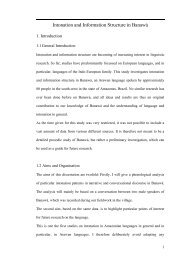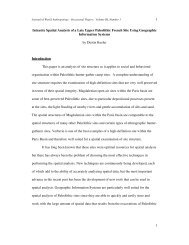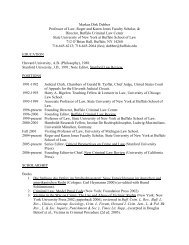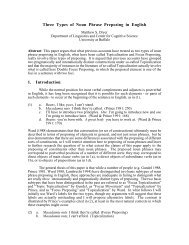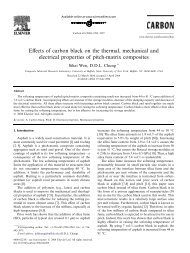Electrophysiological Evidence for Sentence Comprehension - Wings
Electrophysiological Evidence for Sentence Comprehension - Wings
Electrophysiological Evidence for Sentence Comprehension - Wings
Create successful ePaper yourself
Turn your PDF publications into a flip-book with our unique Google optimized e-Paper software.
Leonard’s words, of ‘low phonetic substance’ and this makes morphology especially<br />
vulnerable in children with SLI (Montgomery & Leonard, 1998). On the other hand,<br />
children with SLI showed moderate to good results on phonological discrimination test<br />
while their per<strong>for</strong>mance on other tests was often poorer. Since all children with SLI<br />
included in the study receive therapy, they all have some sort of ‘explicit phonological<br />
knowledge’ and knew how to discriminate between phonemes. When time was not<br />
critical, as in this test, the results were good. The children with SLI showed lower results<br />
on quick naming, where they had to per<strong>for</strong>m quickly. Together with the<br />
electrophysiological tests this indicates processing difficulty, not a representational one.<br />
‘Inefficient’ processing can also be inferred from broad, weak and long lasting effects<br />
(especially noticeable in the late, broad negative deflection in ‘case-chi’ experiment and a<br />
broad frontal and central negative deflection together with a late and weak P600 effect in<br />
‘tense-chi’ experiment). They can indicate different neural substrate, probably not<br />
optimal <strong>for</strong> language processing. However, sentence stimuli, which strained child’s<br />
attention and comprehension abilities, may perhaps not be optimal choice <strong>for</strong> establishing<br />
processing differences between children with TLD and children with SLI. For example,<br />
prefixed words and prefixed pseudowords would perhaps show differences in lexical<br />
access and serve as an indicator of even more complex unification processes that go on in<br />
sentences, but, at the same time, as a lexical decision task it would be more appropriate<br />
experiment <strong>for</strong> children. In this study sentences were used in order to obtain first<br />
comparable data <strong>for</strong> adults, children and children with SLI.<br />
154





